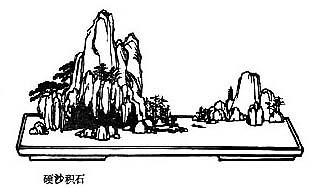Sun Zi 
 – L'Art de la guerre
– L'Art de la guerre
La stratégie chinoise ou comment s'informer, estimer, diviser, détourner, tromper, et vaincre « sans coup férir ». Tr. Amiot (fr) et Giles (en).
De la concorde et de la discorde
Sunzi XIII. 2.
Être plusieurs années à observer ses ennemis, ou à faire la guerre, c'est ne point aimer le peuple, c'est être l'ennemi de son pays ; toutes les dépenses, toutes les peines, tous les travaux et toutes les fatigues de plusieurs années n'aboutissent le plus souvent, pour les vainqueurs eux-mêmes, qu'à une journée de triomphe et de gloire, celle où ils ont vaincu. N'employer pour vaincre que la voie des sièges et des batailles, c'est ignorer également et les devoirs de souverain et ceux de général ; c'est ne pas savoir gouverner ; c'est ne pas savoir servir État
Amiot
Hostile armies may face each other for years, striving for the victory which is decided in a single day. This being so, to remain in ignorance of the enemy's condition simply because one grudges the outlay of a hundred ounces of silver in honors and emoluments,1 is the height of inhumanity.2
One who acts thus is no leader of men, no present help to his sovereign, no master of victory.3
Giles XIII.2,3.

L'Art de la guerre – Sun Zi XIII. 2. – Chinois off/on – Français/English
Alias Sun Tzu, Sun Wu, Sun Tse, Sunzi Bingfa, Souen Tseu, Souen Wou, 孫武.
Le Canon des Poèmes, Les Entretiens, La Grande Étude, Le Juste Milieu, Les Trois Caractères, Le Livre des Mutations, De la Voie et la Vertu, 300 poèmes Tang, L'Art de la guerre, Trente-six stratagèmes
Bienvenue, aide, notes, introduction, table.
Index – Contact – Haut de page
